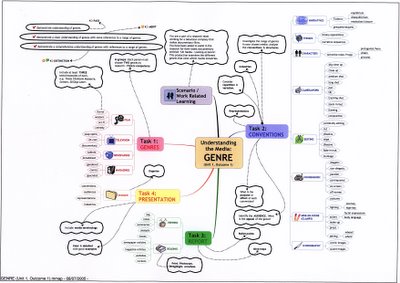For 13C students...
Please sign up to one of the slots below by posting a comment at the end of this message. You must sign up before Christmas and then I'll put up a list on here of the finalised timetable. First come-first served. Remember - you must have completed all blog tasks (1-12) to be eligible for a tutorial so these need to be done by the day we return after Christmas (Thursday 05-01-06). Also, when you attend the tutorial you must bring your fully organised research folder with you so get those in order now if you haven't done already.
Finally, the deadline for the completed first draft of the Independent Study is...
Available times...
Please sign up to one of the slots below by posting a comment at the end of this message. You must sign up before Christmas and then I'll put up a list on here of the finalised timetable. First come-first served. Remember - you must have completed all blog tasks (1-12) to be eligible for a tutorial so these need to be done by the day we return after Christmas (Thursday 05-01-06). Also, when you attend the tutorial you must bring your fully organised research folder with you so get those in order now if you haven't done already.
Finally, the deadline for the completed first draft of the Independent Study is...
- Tuesday 7th February
Available times...
- Monday 09-01: periods 1 (Russell), 2 (Manjoth), 3, 4 (Mariam),5 or 6
- Tuesday 10-01: periods 1 (CANCELLED...choose another) or 3
- Wednesday 11-01: periods 2 (Charanpal), 3 (Anita), 5, 7 (Shabazz)or 8 (Sofia)
- Friday 13-01: periods 2 (CANCELLED...choose another) or 3 (Danny)
- Monday 16-01: periods 2 (Aanchal), 3, 4, 5, 6 or 8 (Russell)
- Tuesday 17-01: periods 1 or 3
- Wednesday 18-01: periods 1 (CANCELLED...choose another), 2 (Pardeep), 3 (Abisheik), 5 (Bilan) or 8 (Kristina)
- Friday 20-01: periods 2 (Harbinder), 3 (Iena) or 4 (Roohdip)

